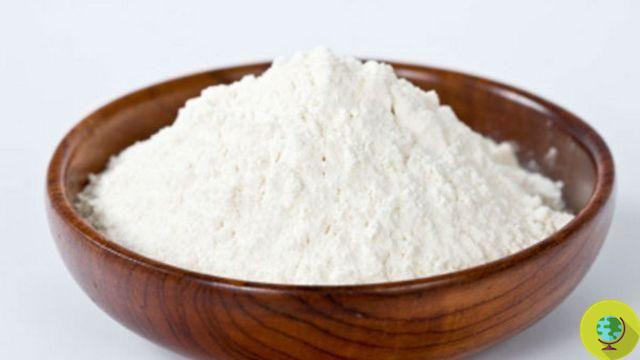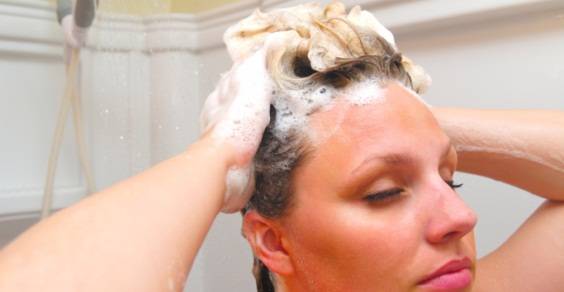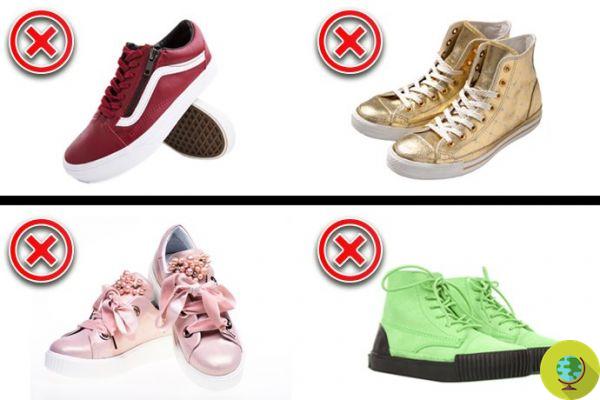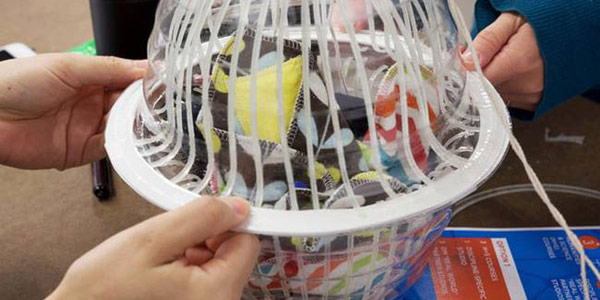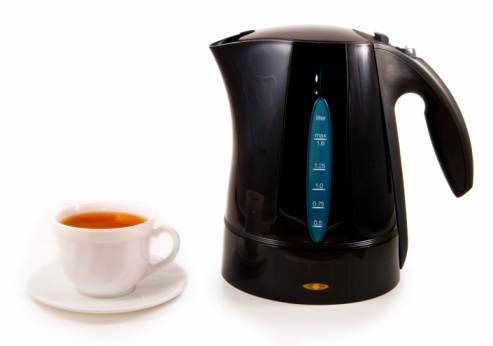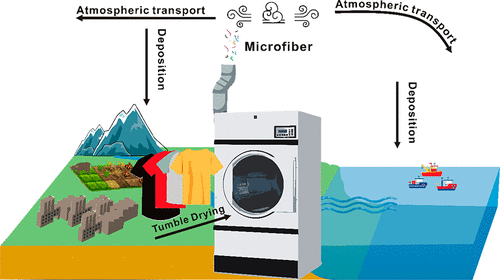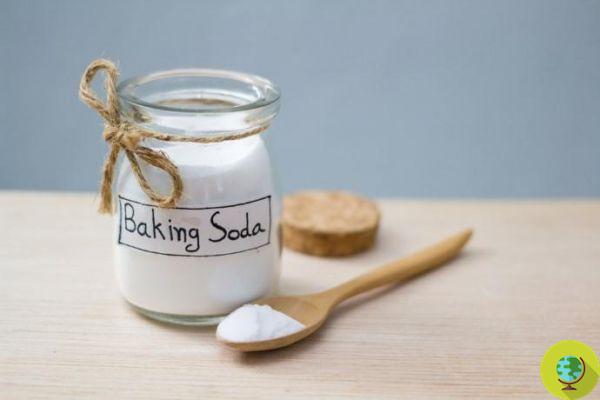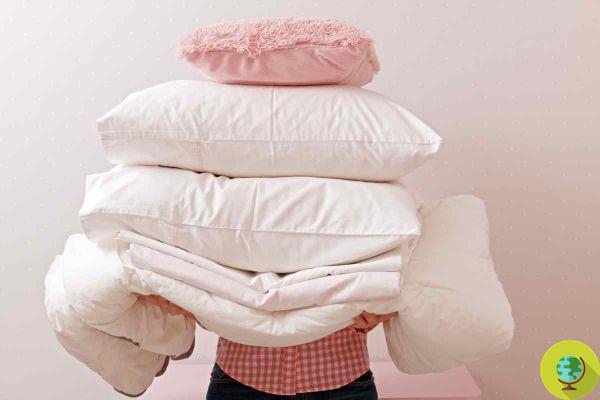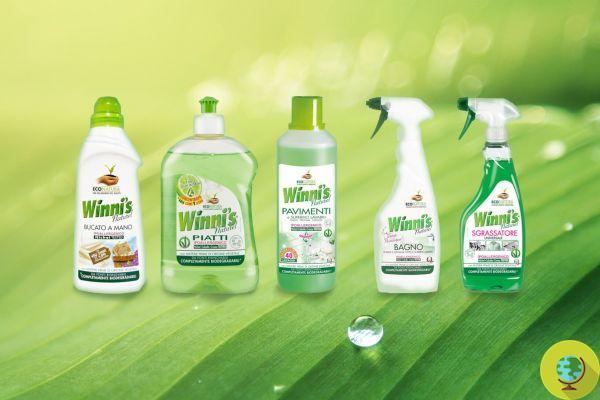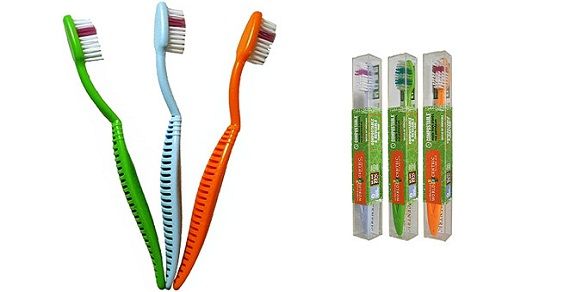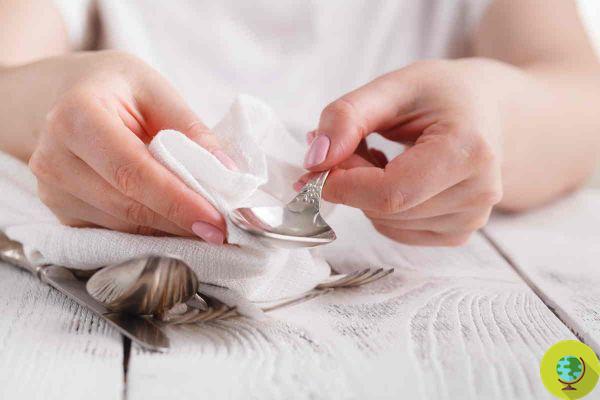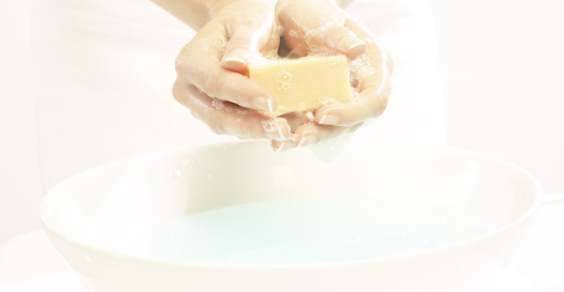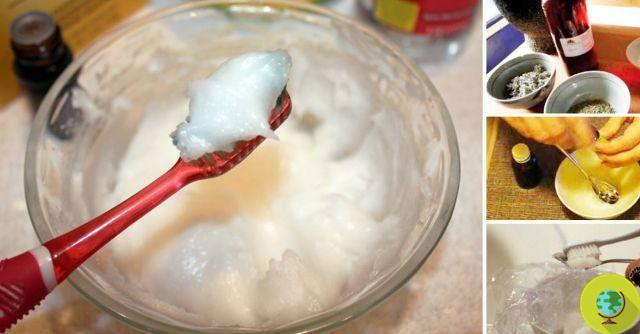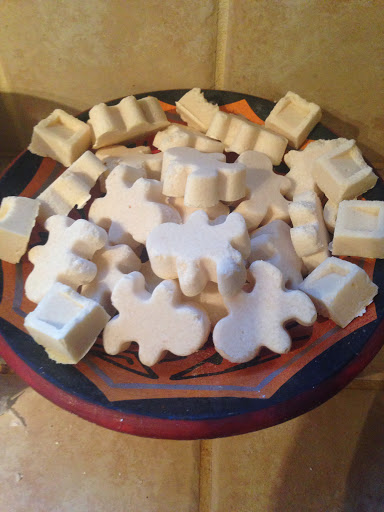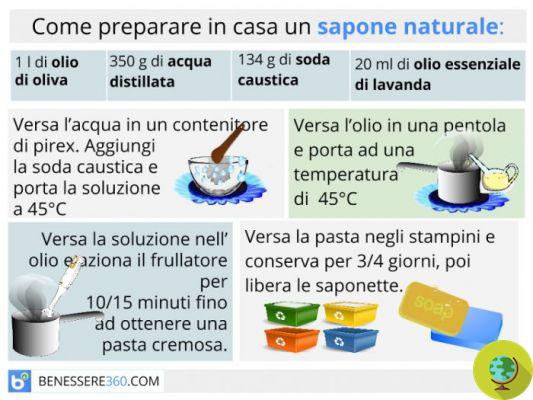
How to recognize a natural soap and why use it? Let's try to answer this very important question together for those who decide to avoid industrial-type soaps and prefer natural soaps, containing vegetable ingredients, even better if of biological origin and free of preservatives, synthetic fragrances and allergenic substances.
He is about to end up run over, his mother saves him
How to recognize a natural soap and why use it? Let's try to answer this very important question together for those who decide to avoid industrial-type soaps and prefer natural soaps, containing vegetable ingredients, even better if of biological origin and free of preservatives, synthetic fragrances and allergenic substances.
Natural soaps can be purchased in herbalist's shops, in some fair trade shops, in organic outlets, online and sometimes even in the supermarket, if there is an ancolo dedicated to ecological products. Otherwise they can be prepared at home with a little attention and with the use of only three ingredients. Self-production will give you the advantage of knowing perfectly the ingredients contained in your soap, of flavoring it as desired with essential oils, as well as creating soaps of different sizes, convenient to keep next to the sink or to take with you while traveling or away from home.
Over the last few years the spread of soaps and antibacterial cleaners, on sale both in large-scale distribution and in pharmacies, has been linked to the growth of fears regarding possible infections by germs and bacteria from which to protect yourself promptly by washing or cleaning your hands frequently, with the only consequence of moving towards hygienic habits that are probably exaggerated, also putting your skin in contact with alcohol and other potentially aggressive substances contained in some products.
Some of them, such as triclosan, have been considered as harmful as equal to pesticides by the EPA (Environmental Protection Agency). However, triclosan is currently still present also in our country in numerous products, such as soaps, liquid cleaners, intimate care products, toothpastes and mouthwashes products for home care and antibacterials. Triclosan is used in the manufacture of detergents as a powerful antibacterial, despite having been indicted as endocrine disruptor and how deleterious substance for heart and skeletal health. The EPA has not yet banned the use of triclosan in the United States, but has decreed it as pollutant harmful to aquatic fauna.
The use of overly aggressive antibacterial soaps can be considered harmful to the immune system, whose specific action against the presence of bacteria could be weakened by excessive asepticity. To be able to wash your hands outside the home avoiding the classic antibacterials or industrial soaps present in public bathrooms, it will be possible to take with you a small bar of soap or a reusable and refillable vial containing organic and eco-friendly liquid soap.
If a natural antibacterial action is desired, a few drops of tea-tree essential oil can be added to the liquid soap or solid soap preparation. Alternatively, you can buy organic and natural detergents that contain it. It is indicated on the label as “melaleuca alternifolia leaf oil”. Before purchasing, remember to always check the label of your soap to verify that it is composed of ingredients that are as natural and harmless as possible and preferably free of synthetic preservatives, synthetic fragrances and allergens. In order to do this, you may find it useful to keep the Biodictionary at your fingertips.
Marta Albè
Read also:
- How to make vegan soap at home
- How to make homemade soap with just 3 ingredients





